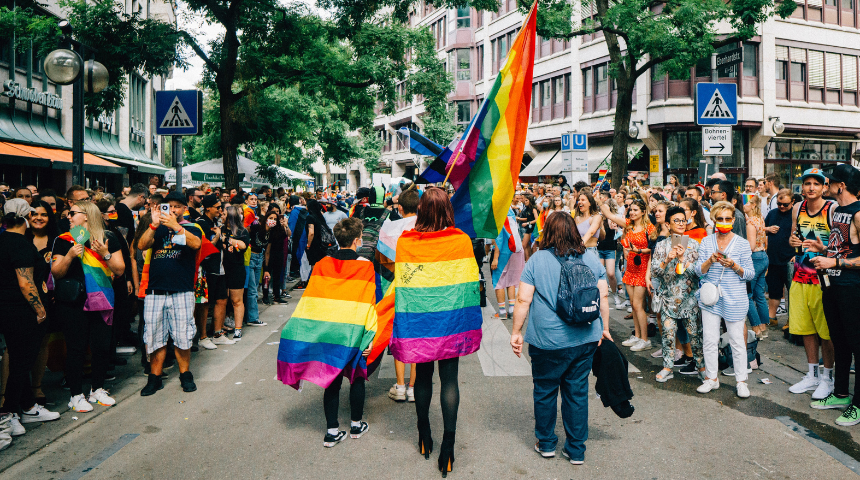November 20th marked Brazilian Black Awareness Day — an important occasion for Black movements and the anti-racism agenda in the country. It's a day for reflecting on, acting against, and combating the various daily inequalities faced by the Black population due to structural racism. According to the Brazilian Institute of Geography and Statistics, Black individuals experience the highest barriers to employment, education, security, and sanitation.
While symbolic dates play a crucial role in sparking discussions, the fight against racism is a commitment every day, across multiple fronts. Political representation stands out as a crucial strategy to reduce the power imbalances that underpin many other inequalities.
In recent years, there has been notable advancements in Brazil due to incentives given to increase the political participation of women and Black people. Between the general elections of 2018 and 2022, there was a 36.25% increase in Black candidates for the Chamber of Deputies. In terms of elected individuals, the rise was 8.94%, with Black politicians now occupying 26% of elected positions. However, this proportion remains significantly below the 56% of people in Brazil who identify as Black.
The path ahead is long and challenging. This year, the Chamber approved two measures—the so-called electoral mini-reform and the Amnesty PEC (Constitutional Amendment Proposal). As these measures didn’t progress, they won't apply to the 2024 local elections.
At the same time, a significant part of Brazilian society mobilised to urge President Luiz Inácio Lula da Silva to appoint the first Black female judge to the Supreme Federal Court. Lula has yet to announce his decision.
We discussed all of this with Vanessa Nascimento, president of the Peregum Reference Institute, a Luminate partner organisation. Our work with Peregum involves strengthening institutions and supporting capacity-building strategies for Black individuals preparing to run for public office in different political parties. Read the interview below:
What is the current landscape of political representation for Black individuals in Brazil, and why is it important to increase it?
Regrettably, political representation in Brazil remains highly inadequate. Currently, in the Federal Chamber, 72% of seats are held by white individuals, according to the Superior Electoral Court. This percentage starkly contrasts with the racial distribution of Brazilian society, highlighting the fragility of our democracy. We use the term ‘fragility’ because there is no explanation for such disparities in political representation that is not Brazilian racism.
This lack of representation has practical effects, hindering the approval of measures contributing to overcoming racism and the enactment of public policies advancing the living conditions of Black people, women, indigenous people, LGBTQIA+, and other minority populations. Additionally, the absence of diversity in these spaces is a key factor undermining public confidence in Brazilian democratic institutions.
What measures should be taken to increase political representation for Black individuals in the country?
First, it's important to highlight the strides recently made by the Brazilian Black Movement in ensuring fairer conditions for elections. We emphasise the proportional distribution of public campaign funds and the allocation of television and radio time during electoral campaigns for Black candidates. In the 2022 elections, no political party with legislative representation adhered to the regulations. Given this reality, ensuring compliance with the rule by parties and stopping the approval of projects that undermine these established policies is undoubtedly the first step to be taken.
Can you explain what the so-called electoral mini-reform is and how it impacts the political representation of women and Black individuals?
The electoral mini-reform is a legislative initiative currently under consideration in the National Congress, which aims to alter provisions governing elections in Brazil, particularly those related to quotas for women, transparency, and electoral financial accountability. In essence, it goes against demands for democratisation, transparency, and the access of Black individuals and women to the electoral system.
Among its most severe proposals are limiting the scenarios where fraud in female quota fulfillment can occur, which disregards the complexity of the issue. It also aims to change the fulfillment of quotas only for party federations, allowing parties within a coalition, not a federation, to evade compliance with quotas. Prohibiting collective candidacies without broadening the discussion with civil society is another proposal, along with potentially allowing that female funding quotas are used by majoritarian candidacies—not only by the female candidates individually—with the benefit of men running together with women candidates. This last measure risks the creation of token women candidacies as vices solely to secure the use of the electoral fund.
What does Peregum do to increase political representation of Black individuals in Brazil? If the mini-reform and the Amnesty PEC are approved, how will it impact your work?
The Peregum Black Reference Institute contributes to the strengthening of representative leaders of the political agenda of the Brazilian Black movement.
In 2022, we introduced the Leadership Strengthening Project, which aimed to empower and train individuals from Black movements to participate more effectively in the electoral process. Through training and scholarship support before the election period, 19 leaders were directly supported.
The Institute has also prioritised, through its political advocacy strategy, mobilising alongside other actors from civil society, to prevent the approval of the electoral mini-reform and the Proposed Constitutional Amendment 09 of 2023, the “Amnesty PEC”, which seeks to grant amnesty for political parties that did not comply with racial and gender quotas in the 2022 elections. Additionally, PEC 09 aims to establish the reservation of only 20% of funds for Black candidates, regressing from proportional distribution. Certainly, the approval of the mini-reform and PEC 09 directly impacts efforts to ensure the entry of Black and women candidates into elected positions.
What is the importance of having a Black woman on the Supreme Federal Court?
Despite Black women making up 25.4% of the population, there has never been a Black female judge in the Supreme Federal Court. This fact alone should be enough to justify the immediate appointment of a Black woman to the most critical, non-elective position in the country. It highlights the extent of the gap between Black women and white men, and addressing this gap should be a central focus in the Brazilian anti-racist agenda.
Moreover, while Black individuals are underrepresented in Brazilian courts, they are, on the flip side, the primary victims of the criminal justice system, the war on drugs, and numerous other issues that also fall under the purview of the Judiciary. When these individuals need access to justice, they encounter a predominantly white judiciary, who are often unaware of fundamental issues that befall Black people in Brazil. Thus, it is crucial to advocate for the presence of Black women holding seats on the Supreme Federal Court to champion a vision of the country that strengthens its democracy.
Related content

Potencia: The power of beyond-the-grant support

How Brazilians are defending their digital rights

The African Media Ecosystem and Technology
